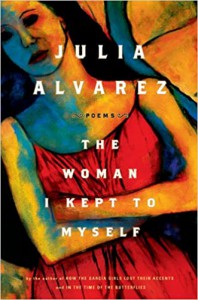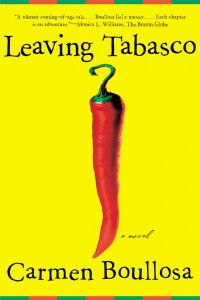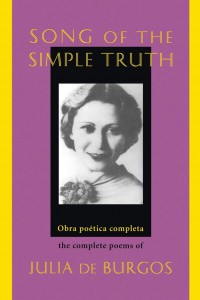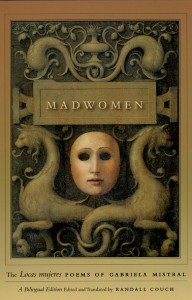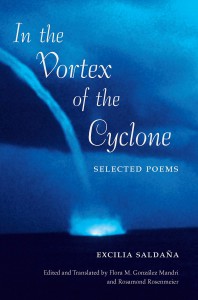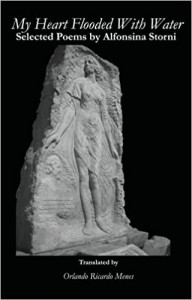We thought it was a fitting time this Hispanic Heritage Month, which runs from September 15 to October 15, to call attention to the work of Latina poets, whose contributions have long been overshadowed by the better known Latino giant of the poetry world, Pablo Neruda.
Here’s a list of Latina poets assembled by Graciela Rivera, branch manager of the Park Street Library and curator of HPL’s Spanish-language collection. It represents a small sampling of works both in our collection and beyond. We hope it provides a starting point to explore less familiar Latin American voices that are as rich and varied as the individual poets and the time and place in which they lived.
Julia Alvarez
Julia Alvarez is a Dominican-American poet, novelist, and essayist who may be best known for her novel, How the Garcia Girls Lost their Accents and In the Time of the Butterflies, which was made into a movie produced by and starring Salma Hayek.
The theme of being caught between two cultures runs through both her poetry and fiction. Born in 1950 in New York City, Alvarez was raised in the Dominican Republic, but had to leave the country
when she was 10 years old when her family supported an unsuccessful attempt to overthrow Dictator Rafael Trujillo and had to flee to Brooklyn. Her other works of fiction include Saving the World. Alvarez also has several children’s books to her credit. Her latest volume of poetry, The Woman I Kept to Myself, was published in 2004.
Carmen Boullosa
The writing of this Mexican poet and novelist deals largely with feminism, the gender roles of Latin American women, social and political injustices, and sexuality. Both her poetry and novels celebrate the tradition of magical realism. Boullosa’s poetry has been anthologized in numerous collections.
Leaving Tabasco, a coming-of-age story about a charming and imaginative girl raised in a home filled with magical women, is one of her better known works of prose.
Julia de Burgos
This Puerto Rican poet, who got her own postage stamp, is credited with being one of the only writers of her generation to weave together themes of romance and political activism
in her work. She bucked the norms of her time, wearing pants and refusing to get married. Her work primarily focused on feminism and social justice. In addition to being a poet, De Burgos was also an activist for both women and African/Afro-Caribbean writers. Recommended read: Song of the Simple Truth: The Complete Poems of Julia de Burgos, translated by Jack Agueros.
Gabriela Mistral
This early 20th century Chilean, feminist poet whose real name is Lucila Gody y Alcayaga, was a one-time teacher of Pablo Neruda and the first Latin American woman to receive the Nobel Prize in Literature. Writing under the pseudonym Gabriela Mistral, she is best known for her work advocating the rights of women, exploring motherhood and sexuality, and her critiques of the homogenization of
North America. Considered by many to be the greatest female Chilean poet of all time, Mistral’s face was even featured on Chilean banknotes. A good work to start with: Madwomen: The “Locas mujeres” Poems of Gabriela Mistral, a bilingual collection translated by Randall Couch.
Excilia Saldana
This Afro-Cuban writer and poet is best known for her experimental writing that blurred the boundaries between poetry and prose. Her work drew heavily from mythology and folklore, but above all she was a poet who strove to convey truths about the lives of Carribbean women, from domestic violence and female friendships to their dual roles as mothers and romantic partners. Try reading: In the Vortex of the Cyclone: Selected Poems by Excilia Saldana.
Alfonsina Storni
Born in Switzerland and raised in Argentina, Alfonsina Storni is considered one of the most important
modernist poets of Latin America. She spent her life writing from Coronda, Buenas Aires, and later Uruguay. Her work features both feminist and erotic themes considered progressive when she wrote them in the early 1900s. Check out My Heart Flooded with Water, a selection of poems from seven of Storni’s collections, translated by Orlando Ricardo Menes.
-30-
